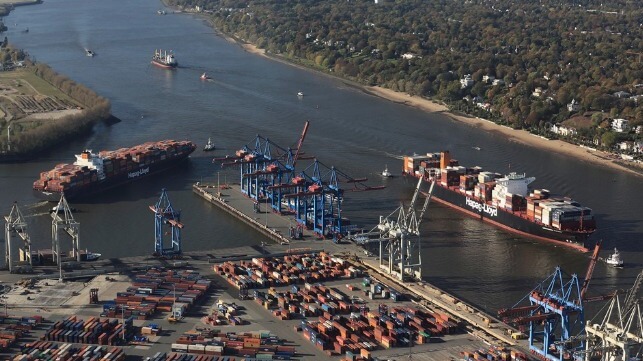EC to Review Carriers' Antitrust Exemption After Shippers Complain

The European Commission is seeking input from the shipping industry as it begins a review of its competition regulations for carriers. The move comes just weeks after a coalition of ten organizations representing European shippers, freight forwarders, terminal operators, and others in the supply chain demanded the review citing actions by other regulators around the world responding to rising prices and complaints over the level of service from carriers during the pandemic.
The call for the submission of evidence over the next eight weeks begins a review of the EU’s Consortia Block Exemption Regulation (CBER), which provides carriers under certain conditions exemptions from antitrust regulations so that they can enter into cooperation agreements to provide joint cargo transportation services. The regulation, which was first enacted in 2009, and extended in 2014 and 2020, is currently due to expire on April 25, 2024. The process being launched by the EC is the first step toward deciding if the exemption should be permitted to expire, amended, or extended for an additional four-year period.
“Over the last two years, the commission has had regular exchanges with market participants, such as shippers, freight forwarders and carriers, as well as with competition and regulatory authorities in Europe, the U.S. and other jurisdictions, on the challenges faced by the shipping sector,” the EC wrote in its call for input from the industry.
The commission justifies the exemption for the carriers saying that it has resulted in efficiencies for carriers that could better use vessels’ capacity and offer more connections. The exemption applies to carriers with a market share that does not exceed 30 percent and are free to price services independently. During its last review in 2020, the EC found that the exemption was providing better service and lower prices, noting that container costs had decreased by approximately 30 percent.
“While the challenges faced by the sector during the evaluation period are exceptional and unprecedented, their impact on the functioning of the maritime supply chain brings useful lessons on the role of consortia in the productivity of liner shipping services, as well as the overall efficiency and
resilience of the global logistics system,” concludes the commission in its calls for evidence. As such, they provide useful information on the relevance of the Consortia Block Exemption Regulation.”
In their letter to the EC in July, the shippers and freight forwarder organizations called for the review to begin saying that they believe the exemption does not reflect the changes in the industry over the past few years. They cite the dramatic increase in carriers’ profits while service has declined and costs skyrocketed. The groups contend that “the excesses of behavior exhibited by shipping lines arise from the open-ended and highly favorable terms in the current regulation.”
While the commission believes there has been a benefit to consumers from the exemption, they also recognize that changes in the competitive structure of liner shipping will have a bearing on the suitability of the exemption from antitrust rules. They also recognize that small and medium-sized carriers could benefit from the reduced compliance costs in the current exemption.

that matters most
Get the latest maritime news delivered to your inbox daily.
The commission said in addition to beginning its comment period, it has also sent targeted questionnaires addressing the impact of the consortia between liner shipping companies permitted by the exemptions, as well as of the CBER on their operations since 2020. The questionnaires were sent to carriers, shippers and freight forwarders, port and terminal operators.
The comment period on the exemption is the latest in a series of initiatives the European Commission says in its role to ensure free and open markets. In December 2021, as part of its sectoral monitoring activities, the EC reports it also started a fact-finding exercise by sending questionnaires to carriers active on trades to and from the EU, to collect market information, in particular on the effects of the coronavirus pandemic on their operations and the maritime supply chain.
